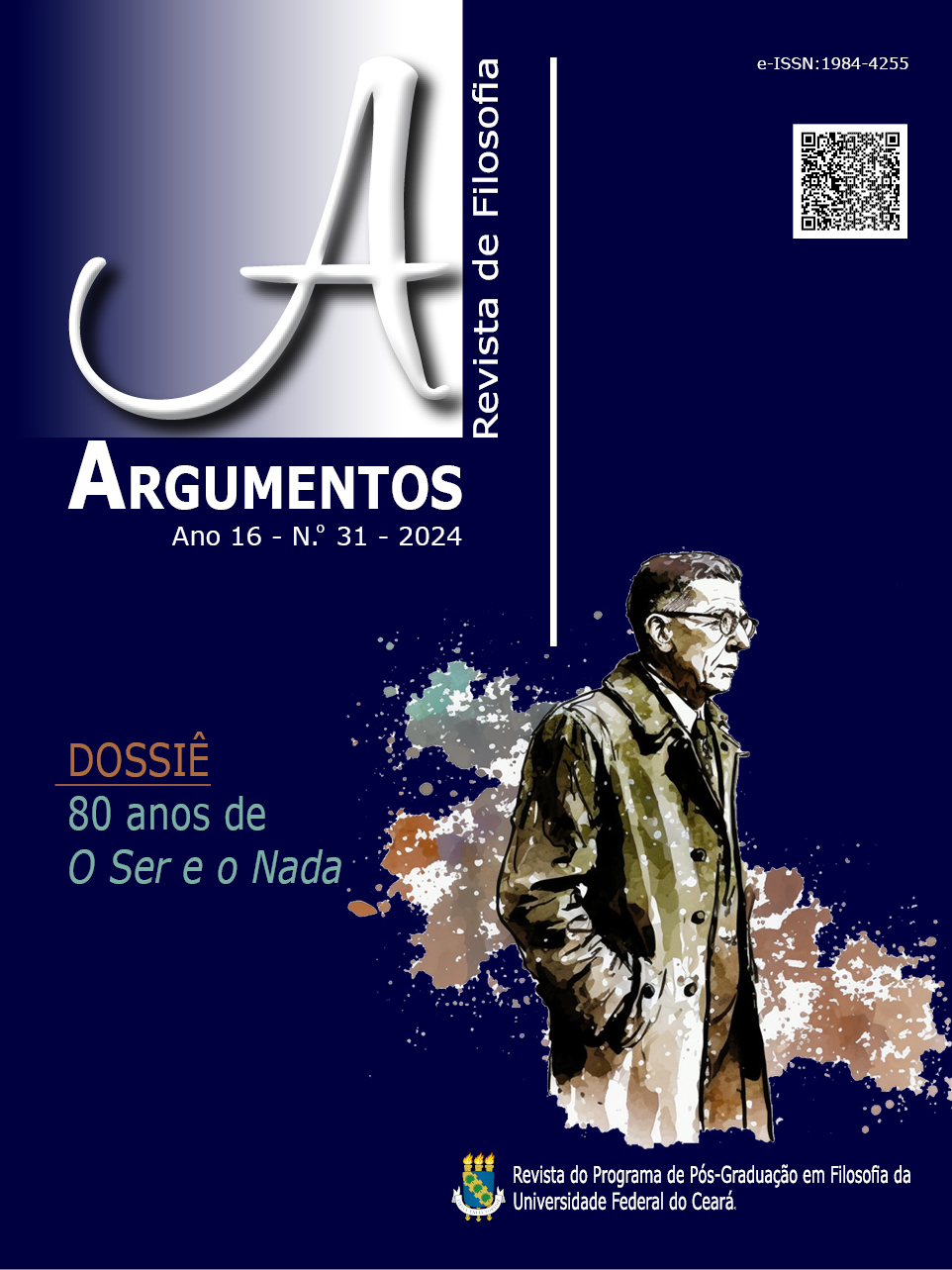Polytheism as liberation of nature
DOI:
https://doi.org/10.36517/Argumentos.31.16Keywords:
Science. Nature. Power. Polytheism. Ecology.Abstract
I initially characterize what I consider to be a growing consensus regarding the relationship between science and nature. This consensus contradicts the definition of scientific activity as a device for the instrumentalization of the natural world – something that it has been since its birth. Next, I criticize the Hegelian notion that science is endowed with an egalitarian politics vis-à-vis nature. Finally, I outline the broad outlines of what could turn out to be an authentic politics of this kind: only possible within a set of polytheistic beliefs. In this environment, the conditions for the deobjectification of nature and the subjectification of the subject would be established – processes without which relations would remain defined in a hierarchical structure. From this change, more egalitarian relations between human beings and nature could be promoted: the basis for sustaining a truly ecological way of life. This would make it possible to overcome the slave mechanism of modern science whose gears take momentum from the spiritual impoverishment of nature.
References
AGOSTINHO, S. A cidade de Deus. Lisboa: Calouste Gulbenkian, 1996.
BACON, F. Novum Organum ou verdadeiras indicações acerca da interpretação da natureza. São Paulo: Nova Cultural, 1999.
BERLIN, I. Four essays on liberty. Oxford: Oxford University Press, 1969.
Cambridge declaration on consciousness. Disponível em: CambridgeDeclarationOnConsciousness.pdf (fcmconference.org). Acesso em: 17.nov.2022.
DARWIN, C. A expressão das emoções nos homens e nos animais. São Paulo: Companhia das Letras, 2000.
DARWIN, C. Origem das espécies. Belo Horizonte: Villa Rica, 1994.
EDELMAN, D. Sobre a consciência em animais. Ciência Hoje, Rio de Janeiro, v. 50, n. 296, p. 8-11, 2012.
FREUD, S. Novas conferências introdutórias sobre a psicanálise. Rio de Janeiro: Imago, 1976.
HEGEL, G. W. F. Lecciones sobre filosofia de la religión 1. Madrid: Alianza, 1984.
HEGEL, G. W. F. Lecciones sobre filosofia de la religión 2. Madrid: Alianza, 1987.
HUME, D. Tratado da natureza humana. São Paulo: Ed. Unesp/Imprensa Oficial do Estado, 2000.
KANT, I. Fundamentação da metafísica dos costumes. São Paulo: Abril Cultural, 1973.
MARCUSE, H. A ideologia da sociedade industrial. Rio de Janeiro: Zahar, 1982.
NIETZSCHE, F. Genealogia da moral. São Paulo: Companhia das Letras, 1998.
NIETZSCHE, F. Humano, demasiado humano. São Paulo: Brasiliense, 2000.
SCHNEEWIND, J. A invenção da autonomia. São Leopoldo: Ed. Unisinos, 2005.
SIMONDON, G. Du mode d’existence des objets techniques. Paris: Aubier, 1989.
TAYLOR, C. Uma era secular. São Leopoldo: Ed. Unisinos, 2010.
THOMAS, K. A religião e o declínio da magia. São Paulo: Companhia das Letras, 1991.
VIVEIROS DE CASTRO, E. Metafísicas canibais. São Paulo: Cosac Naify, 2015.
Downloads
Published
Issue
Section
License
Argumentos magazine is licensed under an International Creative Commons Attribution License.
The Magazine uses CC BY inclusion
1) The authors retain the copyright granted to the magazine or the right to initial publication, with the work regularly licensed under the Creative Commons Attribution, which allows the sharing of the work with acknowledgment of authorship and initial publication in this magazine.
2) The authors are authorized to contract additional applicable contracts, for non-exclusive distribution of the version of the work published in this journal (for example, publication in the institutional repository or as a chapter of the book), recognition of authorship and initial publication in this journal.
3) Authors are authorized and encourage to publish and distribute their work online (for example, in institutional repositories or on their personal pages) at any time before or during the editorial process, as they can generate productive changes, as well as increase the impact and reference of published work.




.jpg)










._._3.png)
1.jpg)
._._._.png)
